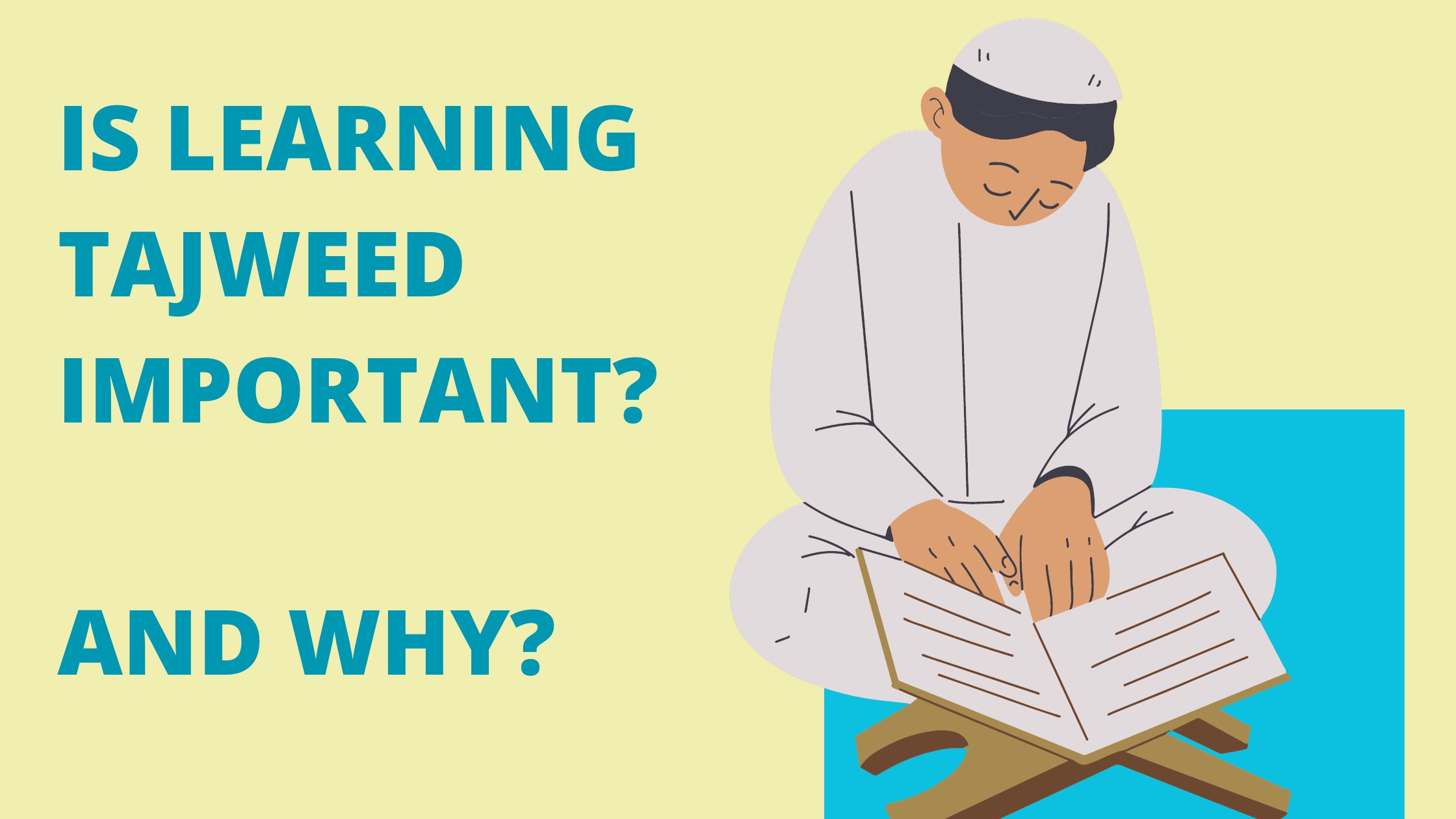Tajweed is essential as it deepens one’s connection with the Quran, preserving its authenticity and fostering a profound spiritual experience. By adhering to Tajweed rules, Muslims honor the divine text and experience a transformative journey that transcends mere recitation. Through proper pronunciation and adherence to Tajweed, individuals not only connect more deeply with the meanings of Quranic verses but also contribute to the preservation of this timeless scripture.
Additionally, Tajweed promotes clarity in communication, spiritual enrichment, and the fulfillment of religious obligation, making it integral to the practice of Islam. Moreover, mastering Tajweed offers cognitive benefits, enhances emotional well-being, and fosters a sense of community and inclusivity within the Muslim ummah.
Learning Tajweed, the science of Quranic recitation, holds paramount significance for Muslims seeking a deeper and more meaningful connection with the Quran. Tajweed is not merely a set of rules governing pronunciation; it is a discipline that ensures the proper and beautiful recitation of the words of Allah. In this article, we explore the profound importance of learning Tajweed and how it contributes to a more enriched spiritual experience.
Table of Contents
Is learning Tajweed Important?
Learning Tajweed is important and even critical and it is not just a skill; learning Tajweed is a sacred journey that deepens one’s connection with the Quran.
By adhering to the rules of Tajweed, Muslims not only preserve the authenticity of the divine text but also experience a profound spiritual connection that transcends words. The beauty and significance of Tajweed lie not only in the correct pronunciation of letters but in the transformative power it holds for the soul of the believer.
As Muslims embark on the journey of learning Tajweed, they embrace a path of spiritual enrichment and a more profound understanding of the timeless wisdom contained in the Quran.
learn how to learn Tajweed.
Why Tajweed Is Important؟
In essence, Tajweed is not merely a set of rules; it is a pathway to a more profound and intimate relationship with the Quran. By mastering Tajweed, individuals honor the divine text, experience the spiritual depth of its verses, and contribute to the preservation of this timeless and sacred scripture.
Tajweed, the science of proper Quranic recitation, holds significant importance in Islam for several reasons:
1. Preservation of the Quran:
Tajweed is crucial for the accurate preservation of the Quran. By adhering to specific rules of pronunciation and recitation, Tajweed ensures that the Quran is transmitted orally with precision and authenticity, preserving the divine text in its original form.
2. Respect for the Word of Allah:
Learning Tajweed reflects a profound respect and reverence for the words of Allah. Adhering to the rules of Tajweed demonstrates a commitment to reciting the Quran with the utmost care and accuracy, recognizing the sacred nature of the text.
3. Spiritual Connection and Concentration:
Tajweed enhances the spiritual experience of reciting the Quran. Proper pronunciation, intonation, and rhythm help individuals connect more deeply with the meanings of the verses. Mastering Tajweed promotes a focused and meditative approach to Quranic recitation, fostering a stronger spiritual bond.
4. Fulfillment of Religious Obligation:
Tajweed is considered a religious obligation for Muslims. The Prophet Muhammad (peace be upon him) emphasized the importance of reciting the Quran in a beautiful and correct manner. Learning Tajweed is a way for individuals to fulfill their religious duty in approaching the Quran with the diligence it deserves.
5. Clarity in Communication:
Tajweed ensures the clear and accurate communication of the Quranic message. The rules guide the reader on proper articulation, pauses, and modulation, allowing for a more effective conveyance of the intended meanings. Clarity in recitation aids in understanding and reflecting on the profound teachings of the Quran.
6. A Source of Blessings and Rewards:
The Prophet Muhammad (peace be upon him) spoke of the rewards associated with reciting the Quran with Tajweed. The one who masters the recitation is promised to be in the company of honorable and obedient angels, while even those who find it challenging and strive to recite properly receive a double reward.
7. Preservation of Linguistic Beauty:
Tajweed helps preserve the linguistic beauty and eloquence of the Arabic language in which the Quran was revealed. Proper pronunciation ensures that the rhythmic and melodic aspects of the Quran are maintained, contributing to the unique and harmonious quality of the recitation.
8. Effective Communication of Emotions:
Tajweed aids in the expression of various emotions and rhetorical styles present in the Quran. The correct application of Tajweed rules allows the reader to convey the intended emotions—whether it be a message of hope, admonition, or solace—with appropriate tone and modulation, adding a layer of depth to the recitation.
9. Avoidance of Misinterpretation:
Learning Tajweed reduces the risk of misinterpretation. Accurate pronunciation ensures that words are not inadvertently altered, minimizing the potential for misunderstanding or misrepresentation of Quranic verses. Tajweed acts as a safeguard against unintentional changes in meaning during recitation.
10. Cultural and Linguistic Appreciation:
Tajweed encourages an appreciation for the cultural and linguistic nuances embedded in the Arabic language. As learners delve into the intricacies of Tajweed, they gain a deeper understanding of the linguistic features that contribute to the richness and beauty of the Quran, fostering a connection with the cultural and historical context of the revelation.
11. Community Harmony and Uniformity:
A shared commitment to Tajweed within the Muslim community promotes harmony and uniformity in Quranic recitation. When individuals adhere to consistent rules, the collective recitation in congregational prayers and community events becomes harmonious, creating a sense of unity and cohesion among believers.
12. Personal Development and Discipline:
Learning Tajweed requires discipline and regular practice. The commitment to mastering the rules instills qualities such as patience, perseverance, and dedication. As individuals progress in their Tajweed journey, they develop not only improved recitation skills but also valuable personal attributes that extend beyond the realm of Quranic studies.
13. Cognitive Benefits and Memory Enhancement:
The process of learning and applying Tajweed rules engages the mind in a focused and systematic manner. This cognitive engagement not only enhances concentration during recitation but also contributes to memory retention. Regular practice of Tajweed can improve one’s ability to memorize and retain Quranic verses.
14. Increased Personal Reflection and Contemplation:
Tajweed encourages individuals to recite the Quran deliberately, fostering an environment conducive to reflection and contemplation. As learners focus on the proper pronunciation and intonation, they are more likely to absorb the meanings of the verses, leading to a more profound personal connection with the scripture.
Learn how to learn Tajweed at home.
15. Fulfilling the Rights of Revelation:
The Quran is considered the literal word of Allah, and learning Tajweed is a means of honoring and respecting this divine revelation. By reciting the Quran with accuracy and beauty, individuals fulfill the rights of the Quran, acknowledging its sacred nature and showing gratitude for the guidance it provides.
16. Teaching Future Generations:
Proficiency in Tajweed equips individuals to pass on this essential knowledge to future generations. By becoming proficient in Quranic recitation, individuals can teach their children, family members, and others in the community, ensuring the continuity of Tajweed knowledge and its transmission through generations.
17. Enhanced Participation in Worship:
Tajweed is integral to the proper performance of Islamic rituals, particularly in the context of prayers. Those who have mastered Tajweed can participate more actively and meaningfully in congregational prayers, where Quranic recitation is an essential component. This contributes to a sense of spiritual fulfillment and connection during communal worship.
18. Become the best of people
Muslims who learn the Quran with tajweed become one of the best people. Prophet Muhammed (PBUH) said:” The best of you are the ones who learn the Quran and teach it to others”.
19. A Key to Enter Paradise:
Those who recite the Quran with tajweed will get intercession from the Quran on Judgement day.
Prophet Muhammed (PBUH) said:” The Quran is an intercessor and a truthful prosecutor. Whoever puts it in front of himself, will lead to Paradise. Whoever throws it behind his back, it will drive him into Hellfire.”
20. Get countless rewards
When you recite one letter in Quran, you get ten rewards.
Prophet Muhammed (PBUH) said:” Whoever reads a letter from the Book of Allah, he will have a reward. And that reward will be multiplied by ten. I am not saying that “Alif, Laam, Meem” is a letter, rather I am saying that “Alif” is a letter, “laam” is a letter and “meem” is a letter.”
21. Be with noble angels
Quran’s reciters with tajweed will be with noble angels. Prophet Muhammed (PBUH) said:” Verily the one who recites the Quran beautifully, smoothly, and precisely, he will be in the company of the noble angels”.
Benefits of Tajweed
The benefits of Tajweed are not only a technical skill but a holistic approach to engaging with the Quran. It offers cognitive benefits, deepens personal reflection, fulfills the rights of revelation, facilitates teaching, and enhances participation in worship. Embracing Tajweed enriches both individual spirituality and the broader Muslim community’s relationship with the Quran.
1. Enhanced Understanding of Quranic Verses:
Mastering Tajweed allows individuals to delve deeper into the meanings of Quranic verses. Proper pronunciation and intonation contribute to a more accurate comprehension of the messages and lessons conveyed in the Quran, fostering a richer understanding of the scripture.
2. Increased Spiritual Presence in Prayer:
Tajweed enables worshippers to approach their prayers with heightened spiritual presence. When reciting the Quran with proper pronunciation and melody during prayers, individuals can experience a more profound connection with Allah, enhancing the spiritual dimension of their worship.
3. Development of Phonemic Awareness:
Learning Tajweed involves a keen focus on the correct articulation of Arabic phonemes. This process enhances phonemic awareness—the ability to distinguish and manipulate individual sounds. This heightened awareness can extend beyond Quranic recitation, benefiting learners in language-related activities.
4. Cultural Appreciation and Preservation:
Tajweed provides an avenue for individuals to appreciate the linguistic and cultural aspects of the Arabic language. As learners navigate the rules of Tajweed, they gain insights into the nuances of Arabic pronunciation, contributing to the preservation and appreciation of the cultural heritage embedded in the Quran.
5. Emotional and Psychological Well-Being:
The rhythmic and melodious aspects of Tajweed can have a positive impact on emotional and psychological well-being. Engaging in the beautiful recitation of the Quran can invoke feelings of peace, tranquility, and joy, contributing to a sense of emotional balance and mental well-being.
6. Promotion of Excellence in Worship:
Tajweed is a tool for achieving excellence in worship. Those who have mastered Tajweed can bring a level of precision and beauty to their recitation during acts of worship. This pursuit of excellence aligns with the Islamic principle of offering the best in devotion to Allah.
Read: How long does it take to learn Tajweed?
7. Strengthening Community Bonds:
Individuals who share a commitment to Tajweed contribute to the harmonious recitation within the Muslim community. This shared dedication fosters a sense of unity and strengthens community bonds, especially during congregational prayers and Quranic events.
8. Improved Oral Communication Skills:
Learning Tajweed hones oral communication skills, as it involves clear articulation, modulation, and proper use of tone. These skills not only enhance Quranic recitation but also have broader applications in everyday speech, presentations, and interpersonal communication.
9. Nurturing Patience and Persistence:
The journey of learning Tajweed requires patience and persistence. Overcoming challenges in pronunciation and mastering the intricate rules instills qualities of perseverance, discipline, and dedication, contributing to personal growth and character development.
10. Elevated Status in the Hereafter:
The Prophet Muhammad (peace be upon him) emphasized the significance of beautiful Quranic recitation. Those who excel in Tajweed are promised an elevated status in the Hereafter, being in the company of the honorable and obedient scribes (angels), as mentioned in authentic hadiths. This underscores the profound spiritual benefits associated with mastering Tajweed.
11. Enhanced Focus and Mindfulness:
Tajweed requires a high level of concentration and mindfulness during Quranic recitation. Practicing Tajweed regularly cultivates the ability to focus on the present moment, fostering a state of mindfulness that carries over into other aspects of life.
12. Cultural Bridge for Non-Arabic Speakers:
For non-Arabic speakers, learning Tajweed serves as a cultural bridge, connecting them to the linguistic and artistic beauty of the Arabic language. This cultural appreciation goes beyond religious study and contributes to a broader understanding of the Arab heritage.
13. Promotion of Reverence for Sacred Texts:
Tajweed instills a deep sense of reverence for sacred texts, emphasizing the importance of treating religious scriptures with utmost respect. This attitude extends to other aspects of life, promoting a culture of reverence and mindfulness in various spheres.
14. Cultivation of a Lifelong Learning Mentality:
Learning Tajweed is a continuous and dynamic process. Individuals engaged in Tajweed education develop a mentality of lifelong learning. This attitude extends beyond Quranic studies, encouraging a proactive approach to acquiring knowledge in various fields throughout one’s life.
15. Stress Reduction and Relaxation:
Engaging in the rhythmic and melodic recitation of Tajweed can serve as a form of stress reduction and relaxation. The soothing nature of Quranic recitation has therapeutic effects, contributing to emotional well-being and providing a calming influence during challenging times.
16. Elevated Aesthetics in Worship Spaces:
Communities that prioritize Tajweed contribute to the aesthetic appeal of their worship spaces. Harmonious and well-pronounced Quranic recitation enhances the overall atmosphere, creating a spiritually uplifting environment within mosques and other places of worship.
17. Promotion of Inclusivity in Worship:
Tajweed can foster inclusivity within the Muslim community. By encouraging and facilitating the learning of Tajweed, communities create an environment where individuals of various linguistic backgrounds can participate in Quranic recitation with confidence, regardless of their native language.
18. Encouragement of Parental Bonding:
Parents who are proficient in Tajweed can pass on this knowledge to their children, creating opportunities for shared learning experiences. Engaging in Tajweed lessons together fosters a unique parent-child bond and strengthens the intergenerational transmission of Quranic knowledge.
19. Contribution to Interfaith Understanding:
Learning Tajweed can be a positive avenue for interfaith understanding. Sharing the art of Quranic recitation, especially with non-Muslims, provides an opportunity to showcase the linguistic and cultural richness of Islam, promoting dialogue and mutual respect.
20. Cultural Enrichment through Poetry and Melody:
Tajweed introduces learners to the poetic and melodic aspects of Quranic verses. The rhythmic patterns and rhymes found in the Quran contribute to the cultural enrichment of individuals, fostering an appreciation for the artistic dimensions of the Arabic language.
Learn Tajweed Online With Bayan al-Quran
Embark on a transformative journey of Quranic learning with Bayan Al-Quran’s state-of-the-art Tajweed courses. Our online platform is dedicated to providing an authentic and immersive Tajweed learning experience, bringing the timeless beauty of Quranic recitation to learners around the world.
Bayan al-Quran offers the opportunity to earn an Ijazah in Tajweed, providing a recognized certificate for mastering Quranic recitation. Join our program to receive expert guidance, learn with qualified instructors, and enhance your skills in Tajweed.
Embark on a transformative journey to master Tajweed with Bayan al-Quran. Our comprehensive program is designed to elevate your understanding and application of Tajweed rules, ensuring a profound connection with the Quran.
🎓 Expert Guidance:
Benefit from expert instructors well-versed in the nuances of Tajweed. Our carefully crafted lessons break down complex rules into digestible segments, catering to learners of all levels.
✨ Key Features:
- Learn Tajweed in a structured, step-by-step manner.
- Access high-quality instructional materials.
- Practice with real-time feedback from experienced tutors.
- Convenient, flexible learning schedules to suit your pace.
- Immerse yourself in the melodious tones of Quranic recitation.
🌟 Why Choose Bayan al-Quran?
At Bayan al-Quran, we prioritize your journey to Tajweed proficiency. Join our vibrant community of learners committed to perfecting their Quranic recitation. Enrich your spiritual experience and build a lifelong connection with the divine words of the Quran.
Conclusion:
Learning Tajweed is not just a skill; it’s a sacred journey deepening one’s connection with the Quran. By adhering to Tajweed rules, Muslims preserve the authenticity of the divine text and experience a profound spiritual connection beyond words. Tajweed enriches both individual spirituality and the broader Muslim community’s relationship with the Quran.
















